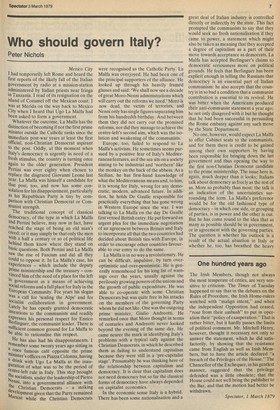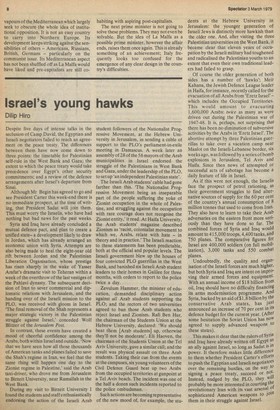One hundred years ago
The Irish Members, though not always the most temperate of critics, are very sensitive to criticism. The Times of Tuesday happened to say that in the debates on the Rules of Procedure, the Irish Home-rulers watched with "malign intent," and when the independent Opposition had ceased, "rose from their ambush" to put in operation their "policy of exasperation." That is rather bitter, but it hardly passes the limits of political comment. Mr. Mitchell Henry, however, thought it necessary not only to answer the statement, which he did satisfactorily, by showing that the resistance came from English as well as Irish Members, but to have the article declared "a breach of the Privileges of the House." The Chancellor of the Exchequer, in his gentlest manner, suggested that the privilege defended was a little obsolete; that the House could not well bring the publisher to the Bar, and that the motion had better be withdrawn. vapours of the Mediterranean which largely seek to obscure the whole idea of institutional opposition. It is not an easy country to carry into Northern Europe. Its development keeps striking against the sensibilities of others — Americans, Russians, British, Germans — particularly on the communist issue. Its Mediterranean aspect has not been shuffled off as La Malfa would have liked and pre-capitalists are still co habiting with aspiring post-capitalists.
The next prime minister is not going to solve these problems. They may not even be solvable. But the idea of La Malfa as a possible prime minister, however the affair ends, raises them once again. This is already something of an achievement; Italy frequently looks too confused for the emergence of any clear design in the country's difficulties.



































 Previous page
Previous page